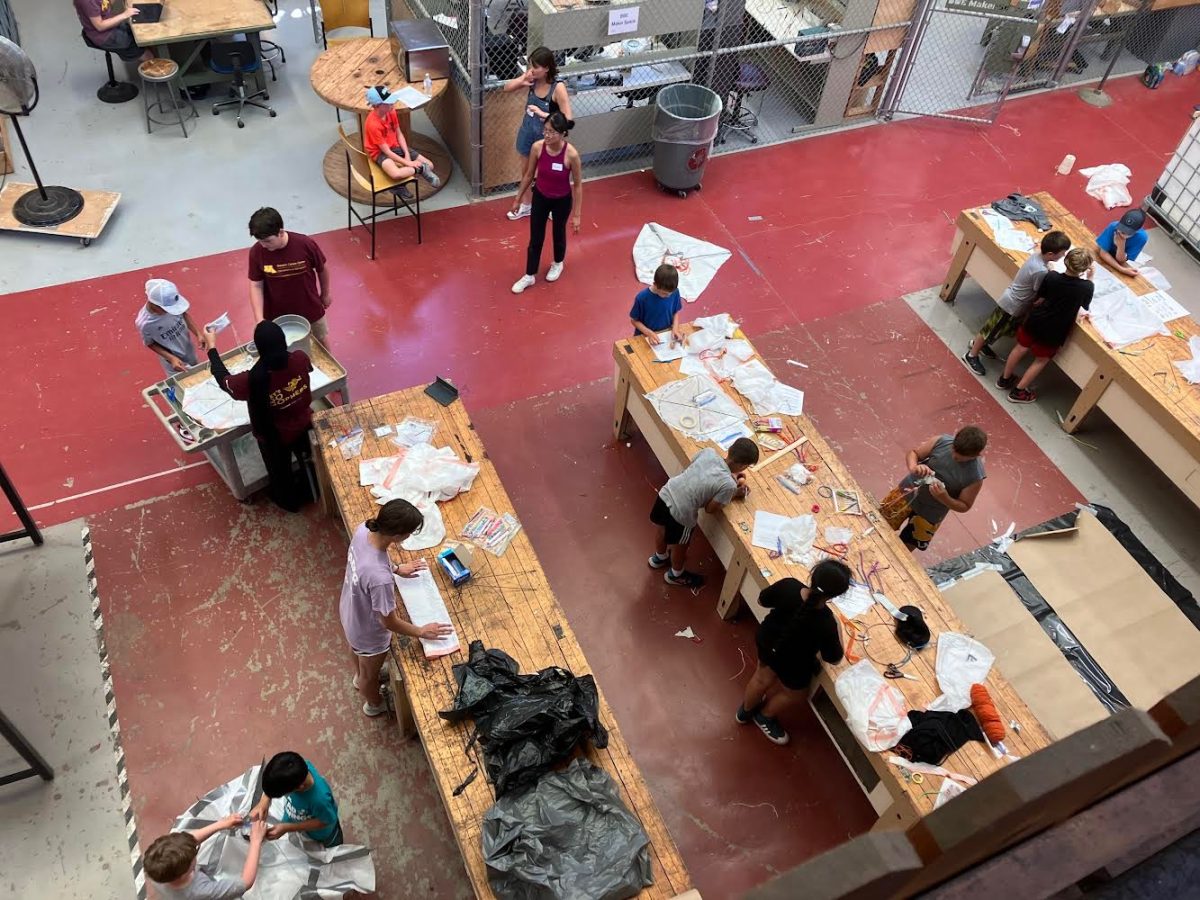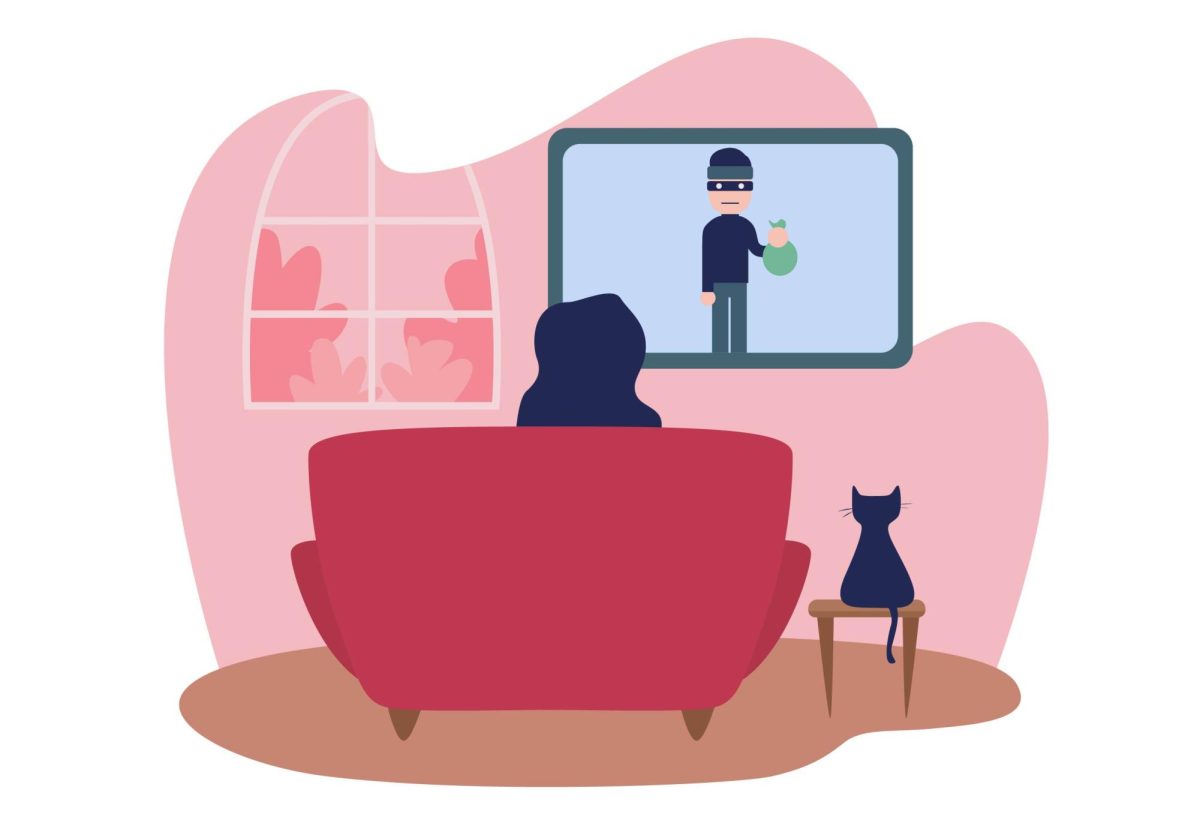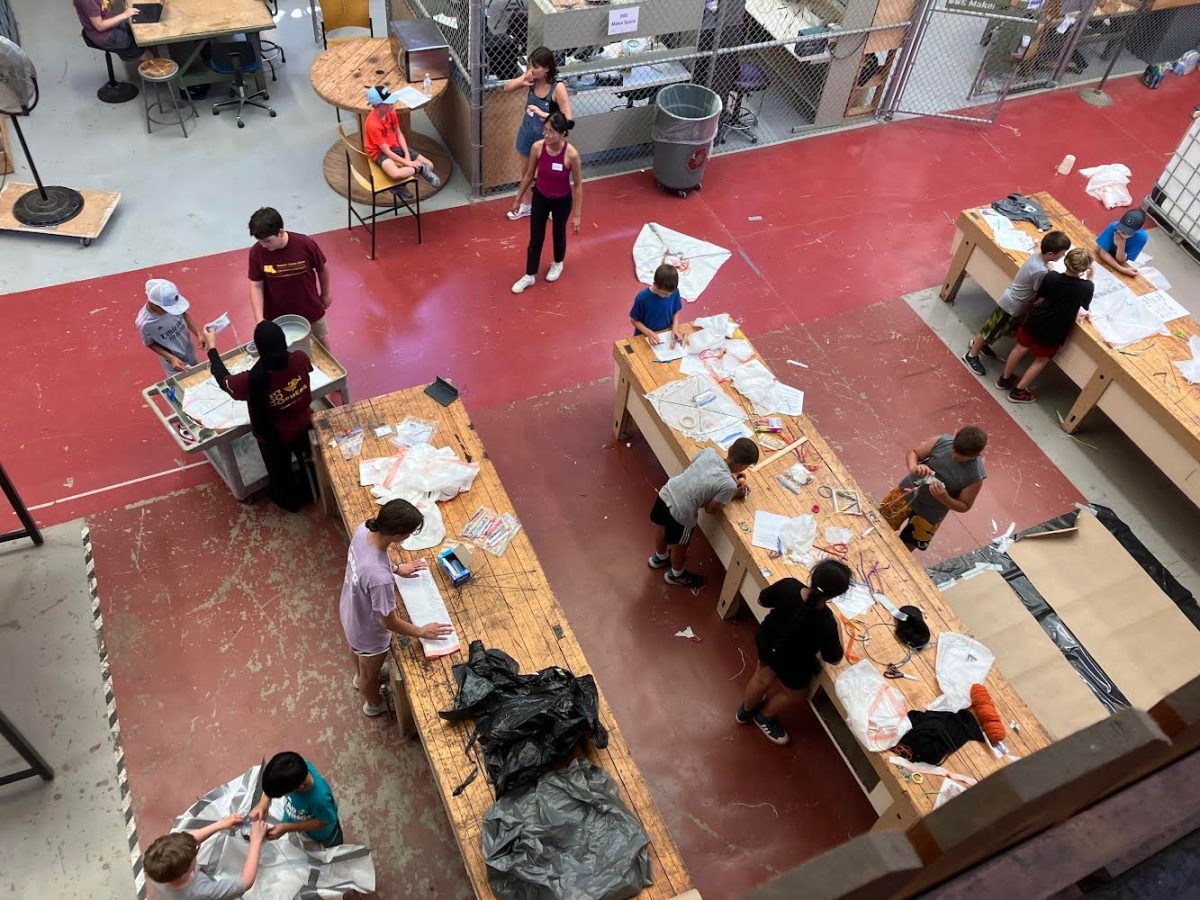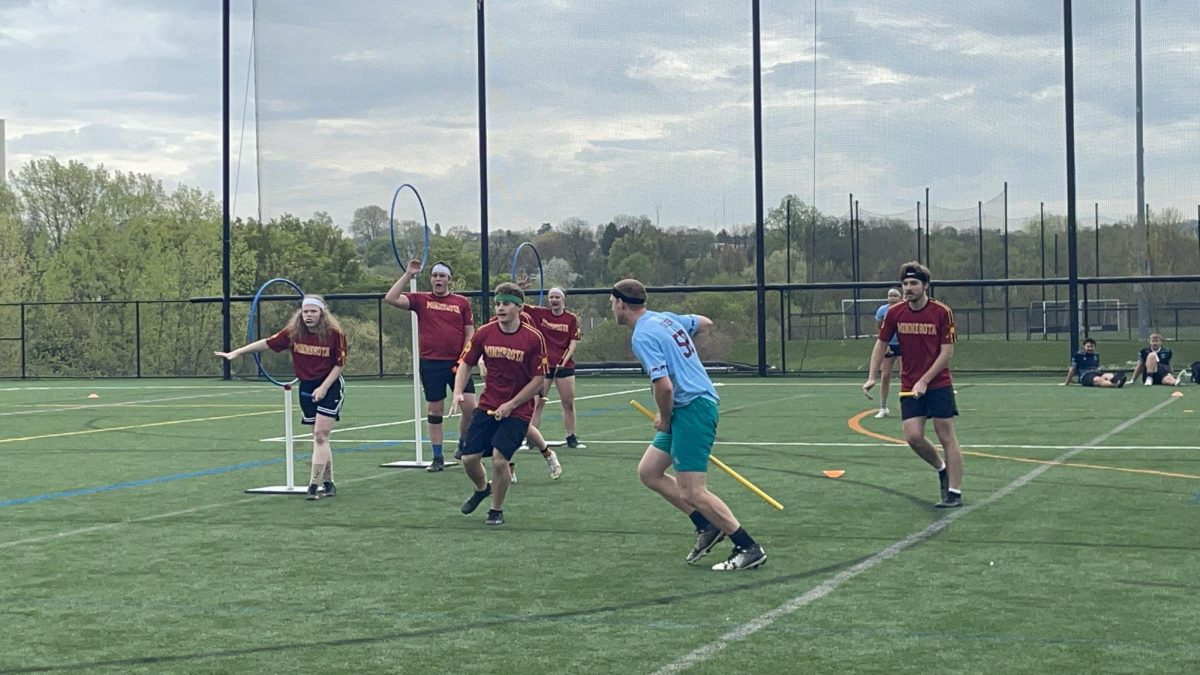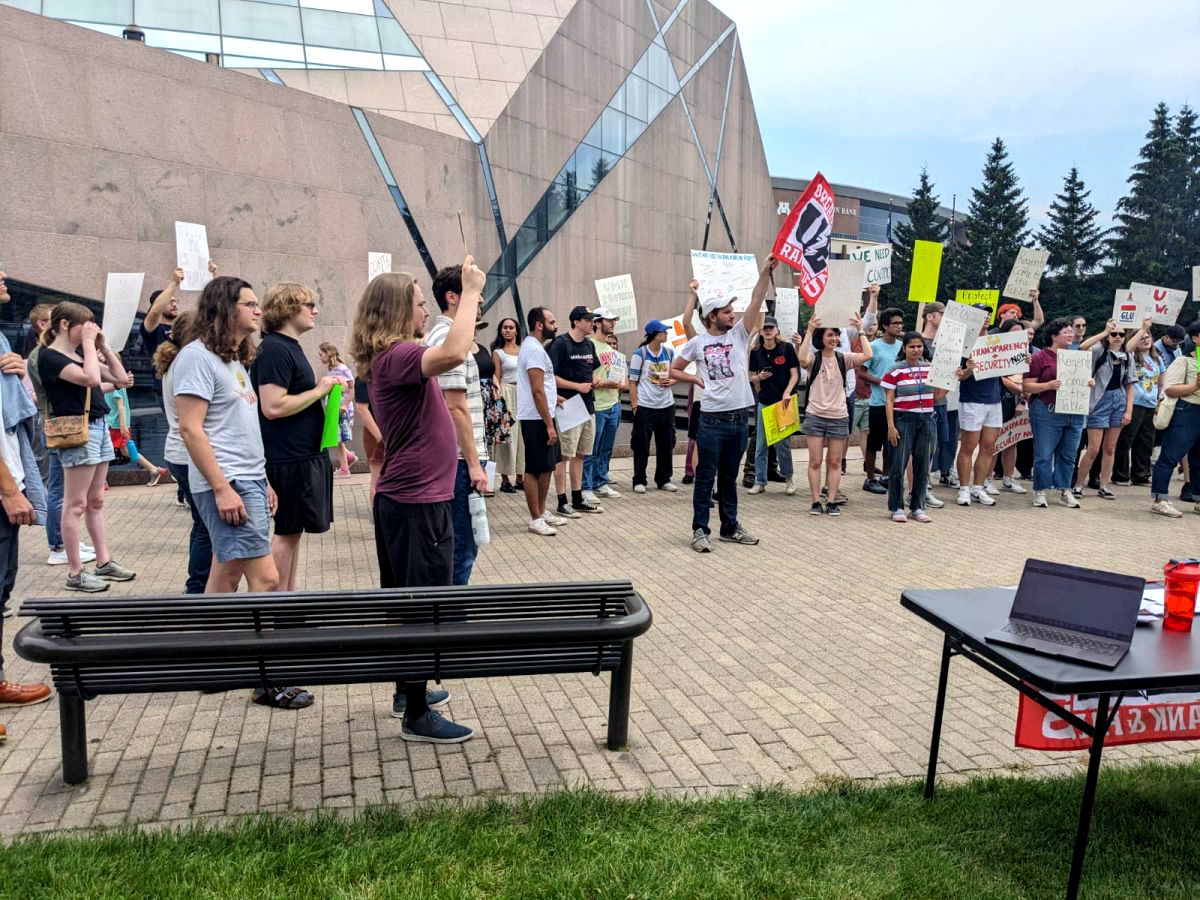The University of Minnesota’s Esports at UMN club looks to be a part of Big Ten athletics as numbers continue to grow with no space to call their own.
Since its start in 2017, Esports at UMN has grown exponentially with about 500 current members. Around 50 to 100 of them are actively competing in one of the seven teams within the club.
Under the umbrella of the club, there are seven different games with their own competitive teams, said Nate Singer, president of Esports at UMN.
Different game communities within the club include Counter-Strike, Fortnite, League of Legends, Overwatch, Rainbow Six, Rocket League and Valorant, according to Singer.
Singer, a third-year student, said the club has grown a lot since he joined in 2021.
“We’ve learned how to be an organization instead of just a bunch of separate games,” Singer said. “We want to continue growing. We want to continue legitimizing esports as a real thing not to be laughed at.”
According to Singer, the COVID-19 pandemic is when people started playing esports more, taking to it as a community.
“We are people who play these games, and we get it, it’s weird at first to understand and explain,” Singer said. “Playing video games competitively is a weird thing, but we just want people to know that esports is not a trend, it’s a decades-long tradition of competition and community that began with people playing in arcades.”
With numbers on the rise, Singer said the club is hoping to gain more recognition to get a facility on campus and be supported by the Big Ten.
Currently, the club hosts open houses and some events at Left Click Lounge in Dinkytown, but the group is hoping for a space of their own to hold events and allow people to practice, said Singer.
“We don’t expect to be just given the status as an official branch of UMN athletics just because we say we want to be,” Singer said. “We truly believe that we deserve it and we want to prove that to the U by showing that we have an organized club and a structure in place that makes this a sustainable branch of the organization.”
Doug Goon, the director of information technology for Intercollegiate Athletics, is working with Esports at UMN to help them become organized.
According to Goon, other colleges have the esports program under the RecWell umbrella, the student unions or the technology office, with very few having it in athletics.
Goon added that last year, they approached the Big Ten conference asking if they would sanction esports, but they were too late. Instead, Goon said the Big Ten universities decided to do it anyway and the Big Esports Conference (BEC) was started.
“It’s important for us for this program to be supported campus-wide so that we can get buy-in from all constituents,” Goon said. “In order for us to kind of achieve the esports ecosystem that we’re aiming to build, we need buy-in across the board.”
Singer said it is important to show the University and Big Ten what the club can already do without outside support.
“Look what we can do without any of the school supporting us or having to scrape together the funding,” Singer said. “Imagine what we can do if we had more official support.”
Goon said scholastic sports add an educational component tied to learning and structured game time where the positive things about esports get overshadowed by some of the few negatives.
“That’s a very attractive piece, especially to parents who feel like this is a negative thing, and it’s just kids wasting their lives on video games,” Goon said. “If you just take some time to be open to it and understand and see that when these kids compete at the highest level against other colleges, it doesn’t look very much different than any traditional sport.”
According to Goon, there was a previous professor at the University who worked with him to try to create an esports certificate program as a pathway to an esports minor. However, after the professor left, Goon said he was back to square one.
In an effort to bring esports to the forefront of the University, Goon said he was able to get the National Association of Esports Coaches and Directors national convention to be held in Huntington Bank Stadium on June 19, with 150 to 250 esports directors and coaches flying in from all over the country.
Goon added the BEC is also “scraping together” what funding they have to fly esports teams to Columbus, Ohio for an in-person competition, hoping to show the Big Ten the opportunities it is missing out on.
“All the concerns that we have as an athletic department about the coming generation choosing esports over traditional sports, Big Ten, maybe you should consider trying to fill the gap before it becomes a real problem for you,” Goon said.
Another initiative Goon said he has been working towards is an esports lab space on campus, a place where students can play together.
“The kids just need a home right now,” Goon said. “Minnesota is way behind in terms of, is there a space where the gamers can casually play when they’re in between classes or practice or compete hardcore or just have a watch party.”
Rakesh Plantz, a fourth-year student and game lead for Fortnite, said the idea of having a space is enticing because other schools that support their esports teams have their own rooms for players to game in.
When Plantz joined the esports club four years ago, he said there was no team for Fortnite, so he created one.
Since then, the Esports at UMN Fortnite team has grown, winning first place nationally and being nominated for the top collegiate esports Fortnite team.
Plantz said the esports community is very welcoming to those who do not have a lot of experience playing. He said it is also important for people to realize Esports at UMN exists and is really competitive.
“There’s a ton of competition within the esports space throughout all colleges and it’s just another way of expressing yourself, expressing your talent,” Plantz said. “We’re always welcome to have more people join.”
Singer said it is not important to know what games the club plays.
“You don’t need to know what esports are or what games we play,” Singer said. “You can, and that’s great, but it’s more about the fact that there are hundreds of students at this school who love and cherish the ability to play games with their friends.”



